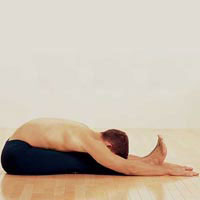One of many themes that emerged throughout my degree program is the fact that Christianity is not Gnosticism - the belief that the material world was created by accident, through stupidity, or by evil, and (in all three cases) is itself evil and must be got rid of*. Christians had a terrible time resisting this religion and its influences, because its assumptions jived really well with Greek philosophy and Christianity, being based in Judaism and not philosophy, didn't. Since Christians didn't fit readily into a predefined category (people need their labels), the authors of the New Testament had to constantly explain how they were only kind of Jewish but definitely not Gnostic. This was really, really important to them, and as a result you can't spill coffee on your Bible without staining some sort of anti-Gnostic statement. For example, if you read something like "Jesus Christ, who came in the flesh", it's not just a phrase that rolls well off the tongue; it's a reminder that the Son of God had a real human body, and that was possible because God is good; creation is good; bodies are good.
So before Christians established very much at all about their theology, they took great pains to reaffirm this very Jewish idea that he saw what he had made, and it was good. But in the intervening years we have never gotten Greek philosophy quite out of our systems; we can't shake the suspicion that Christians should be striving to live on some higher plane, in our minds or our souls or our spirits where the dirt and goo and sweat don't touch us anymore. This heterodox position is everywhere in our church rhetoric.
 I think this contributed, for the first 19 years of my life, to my perception of my body as a liability to be managed. I've never been athletic or even very healthy, and of course I won't be the right size or proportion until I am Scarlett Johansson. And I've always been a thinker - it's not really an exaggeration to say I spent my entire childhood reading. I've decided the main source of my clumsiness is that I can't really be bothered to keep track of all my limbs when I'm analyzing.
I think this contributed, for the first 19 years of my life, to my perception of my body as a liability to be managed. I've never been athletic or even very healthy, and of course I won't be the right size or proportion until I am Scarlett Johansson. And I've always been a thinker - it's not really an exaggeration to say I spent my entire childhood reading. I've decided the main source of my clumsiness is that I can't really be bothered to keep track of all my limbs when I'm analyzing.But when I came to college I became close friends with several people who like to engage in something they called "voluntary exercise". Being surrounded by these people forced me to think about how I used the resource that was my body. And then came the summer of mono, when after waking from a four-week stupor I managed to convince my mother that "yoga isn't that hard"** and started doing it every day out of sheer boredom while I waited to fully recover.
The art of standing funny forced me to notice my body. I had to look at myself from strange angles whether they were flattering or not, and connect elbows to knees or chin to shoulder. But even more importantly, I stopped connecting fingers to ankles, and connected them to my toes, and then one magical day I reached out easy as falling and put the palm of my hand on the back of my heel. My body, it turns out, is a marvel of engineering, capable of changing and adapting and doing just the wildest things; the main reason it couldn't do things before is because... it had never done anything before. I had never had the discipline to go through the not-being-able.
Now I know how to like exercise; but the church still doesn't know how to talk about bodies. And that is not just a minor oversight; when we ignore or misuse our bodies, we are neglecting a glorious gift of God by which I mean we are being bad stewards. So very much of the Bible is trying to tell us what is indisputable in science - that the health of our bodies is inextricably related to the health of the rest of us - so why do we insist on believing our selves reside in our grey matter or in some spiritual dimension?
Here is what I want to see change: when someone says, "I don't know what to do with this emotional energy/insomnia/sexual temptation," we usually answer, "You should pray". The less spiritual, more Biblical answer? "Pray while you run."
-----
*it can get more complicated. you don't want it to.
** this was and is a lie
That is one hundred - ten percent true. I agree with every word you just said there. Thanks for putting better than I 'll ever be able to.
ReplyDelete